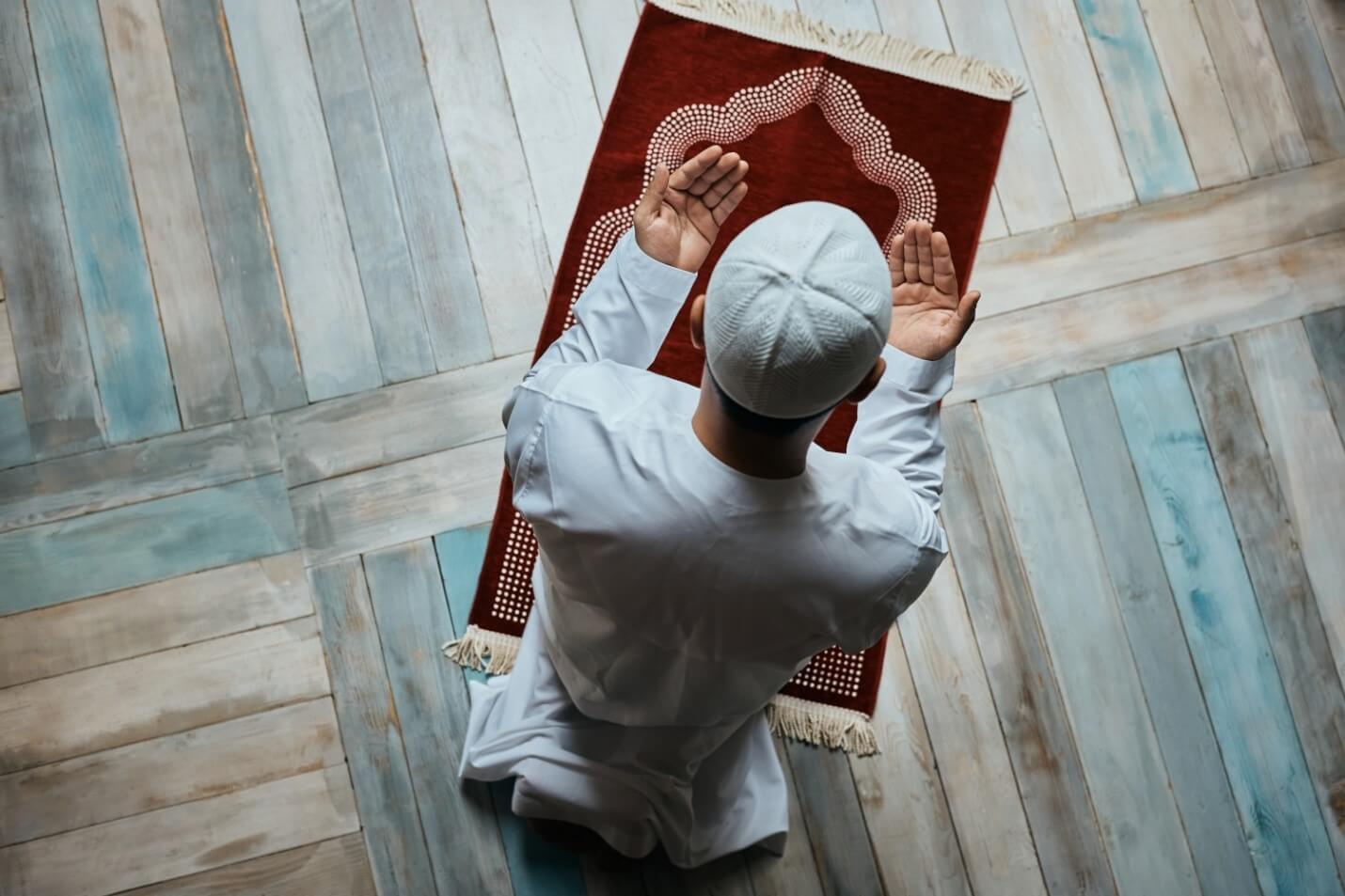Namaz is the second pillar of Islam. As per Muslim belief on the day of judgment, the first question that will be asked by Allah SWT will be about Salah. Similarly, Allah SWT commanded us to offer Salah 700 times in the Quran. This shows the importance of Salah in our lives as well as in the afterlife.
Besides knowing the importance of Salah we often get busy in our routines and forget to offer prayer. Sometimes, just because of a little laziness, we intentionally miss our prayers. So, basically our little negligence and busy routine are leading us to miss such an important thing in our life that we barely realize.
Allah SWT has beautifully integrated Salah five times into our daily routine, which provides us with peace of mind and long-term prosperity if we obey. Allah SWT instructed us to begin the day with Fajar Salah and finish it with Isha.
Moreover, Allah SWT created Duhar so that we might take a rest at midday while dealing with our busy schedules. Similarly, Asar is introduced to keep us fresh and enthusiastic, whereas Maghrib is used to end our job and walk back home.
In addition to the above, there are many spiritual benefits that are also associated with Salah. As our beloved Prophet Muhammad SAW mentioned, Namaz is the key to heaven. This means that one must offer prayer in order to be successful in both worlds. We need to manage our daily routine with Salah so we can’t miss it just because of our busy routine and laziness.
In this blog, we will provide you with 10 essential tips that you must follow in order to manage your daily routine around Salah times:
1. Understand the Importance of Salah
The importance of Salah can be determined from the hadith of Prophet Muhammad SAW,
“Indeed the first deed by which a servant will be called to account on the Day of Resurrection is his Salah. If it is complete, he is successful and saved, but if it is defective, he has failed and lost.” – Jami` at-Tirmidhi 413
This hadith from Jami’ at-Tirmidhi emphasizes the importance of Salah in Islam by noting that it is the first deed for which a person will be held accountable on the Day of Judgment. If someone does Salah completely, that is, truly and in accordance with Islamic beliefs, they will succeed and be saved.
However, if their Salah is weak or faulty, indicating that they ignored or failed to perform it properly, they will fail and lose. This highlights the importance of taking Salah seriously and ensuring that it is done correctly and regularly since it has a significant influence on a person’s ultimate success or failure in the Afterlife.
Furthermore, we can now see that Salah is the most fundamental component of Islam and there is no compromise on that. In this regard, Prophet Muhammad SAW further said:
“Between disbelief and faith is abandoning the Salah.” – Mishkat al-Masabih 569
This hadith clearly shows that there is a significant difference between being a believer and someone who does not believe in Islam. That distinction comes from the abandoning of Salah.
In simple words, failing to perform Salah might take a person away from the path of faith and toward doubt. It underlines the significance of Salah in Islam and how it is an essential component of practicing and upholding one’s religion. View the Salah timings in case you are in Turkey.
2. Prioritize Salah
The early hours of a day for a Muslim should be the beginning of a day with the Fajar prayer, which is the starting point of the day. Five mandatory prayers are to be offered every day by a Muslim; Fajar is the first one offered right before dawn.
The act of punctuality in rising for prayer would then reflect the level of seriousness one has toward faith. It is a time of solitude when the noise of the world is yet to arise and where one can find his or her way to Allah before embarking on another day’s activities.
So, making Fajar a priority involves putting your connection with Allah first and starting every day in spiritual fulfillment. It is such a great key to setting you through a greater tone for the rest of the day; it enables a more centered and focused feeling or realization of what is essential to you.
3. Plan Your Day Around Salah
Planning your day around Salah comprises ensuring that you make time for each one of those five daily prayers. There has to be some balance that one will find between worldly responsibilities and spiritual obligations.
Take a few minutes each evening to think about your schedule for the next day. Think about what time each prayer is and try to fit them into your day. By doing this, you can also ensure that you are making enough time for prayers without always finding yourself in a hurry.
This is for a person to develop a timetable that brings on board not only the daily tasks but also the religious duties so that one can do them with more or less regularity.
Related: How to pray salah during travel
4. Utilize Prayer Apps for Reminders
In modern times, various technological advancements offer easier solutions. There are countless mobile apps that help you keep track of your prayers during the day. These apps give reminders at every prayer time so that you never miss a prayer again.
The apps can alert you on the exact prayer times and ensure that you are always at your best set of preparations for that particular prayer of the day. Prayer applications just act as your assistant in ensuring your program is well taken care of or making you organized and focused on your spiritual quests.
5. Create Dedicated Prayer Spaces
A prayer space means a place to offer your Salah; a simple, clean, quiet, and clean space, nothing grand and fancy. It could be the corner of the room, space in your living area, or a fraction of space in your working space.
Make it a comfortable place so that you are not uneasy, and where your attention will be held within the time of the prayer. If you establish a set place for your prayer, you have an easier means of including Salah in your daily life as you draw nearer to Allah.
6. Combine Intentions with Actions
To combine intentions here is the ability to find avenues through which to include prayers in the entirety of your day-to-day life. For example, if a man is in the office at the time of Duhar, he can take that time for his Salah during usual breaks instead of wasting it.
So, in this way, he did his religious duties without compromising on others. This leads to compliance with our religion and life balance in such a way that our Salah should be a priority always, regardless of whatever goes on.
7. Seek Support from Others
Having a good social support system may help you ease your schedule around times to pray. Actually, it is better to share your prayers and their schedules with your family members or friends so they will support you and follow them.
It becomes easier to offer Salah on time and regularly with people who understand and honour your commitments even when you are running from pillar to post or are not within your comfort zone.
8. Practice Time Management
Effective time management is an element that helps us achieve balance in our lives. It involves identifying your priorities, setting your goals, and then allocating time for each. Just in the same way as you can identify the Salah times, you will be able to allocate reasonable time within which to pray when planning your day.
Identify what distractors or activities waste your time that may likely prevent you from praying on time. If you organize your time effectively, then you will be able to carry out both your worldly responsibilities and also give ample and appropriate time to those of the spiritual dimension.
9. Seek Barakah in Your Time
Barakah refers to the blessings and the divine grace of Allah. When a believer spends time at Salah and other acts of Ibadah, then he is seeking blessings in his life from Allah SWT. In this way, approach your daily routine by seeking Barakah from your Lord in your time and actions.
So, believe that whatever time you take moments throughout your day to offer Salah, it will not only mean fulfilling the obligation but be used for blessings and making your work and efforts better and more efficient. Since your intentions are focused on gaining blessings, you will tend to work more fervently in every aspect of your routine.
10. Reflect and Renew
After Salah, put a few minutes into reflecting on how such activities relate to your own life, think of the feeling it gives and the impact it brings to your spirit. Use this time for reflection and thanksgiving, and feel the connection with Allah SWT.
Re-evaluate whether that suffices for the firmness of your resolution to structure your days according to the times in the Salah, aware of the fact that it is a lifelong approach towards spiritual growth and satisfaction.
Conclusion
In summary, managing your routine around Salah times is quite important in keeping a consistent connection with Allah. Making it a priority in prayers, planning, and finding support from some people helps us keep it important amidst a busy life.
Reflection on why Salah matters and being committed sustains our spiritual life. Let’s continue managing our routines around Salah, remembering that it is a pathway toward spiritual growth and blessings that will lead one to success in both this life and the next.



